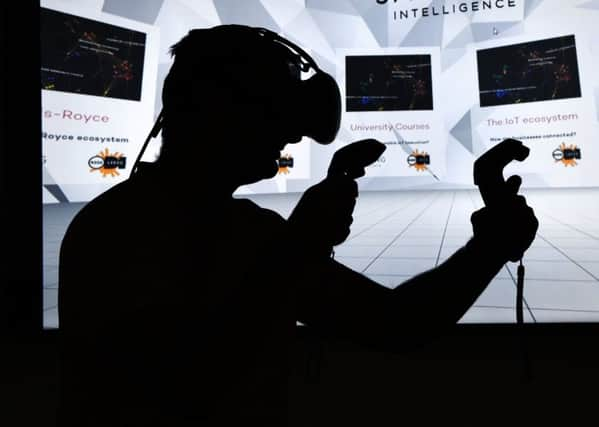Mark Casci: Britain not at all prepared for impact of automation


Don’t worry my friends, this is not another doom-laden polemic on a post-Brexit Britain. Rather what I am talking about is the genuine and very much real threat posed to the UK’s economy, and indeed that of the world’s by the threat of automation.
It is easy for us to dismiss concerns about the impact that the rise of robots will pose but conflict has being ongoing since human beings began to invent things.
Advertisement
Hide AdAdvertisement
Hide AdThe First Industrial Revolution brought about widespread unrest. Machines were smashed and people’s livelihoods destroyed.


We stand on the cusp of the so-called Fourth Industrial Revolution, one in which machines will move beyond mere repetitive actions and begin to actually handle genuine decision-making.
And, to cite the opinion of one of the world’s foremost economists in the shape of the Bank of England’s Andy Haldane, the incoming industrial revolution will be more seismic than its first incarnation.
To take but one sector in logistics, one in which Yorkshire is a key player, the scope for disruption is massive.
Advertisement
Hide AdAdvertisement
Hide AdRather than rely on humans to drive long distance, take sanctioned regular breaks and allow the vehicle to be at risk of occasional but sadly inevitable human error, driverless trucks can operate for as long as there is fuel in the tank, ride in massive convoys to reduce wind drag and operate around the clock in a safer and more efficient manner.
But we should not make the mistake for a single second of thinking automation will impact upon manual trades the most. Large parts of the legal, insurance, accountancy, retail, medical and banking industries will soon find the ranks of their employment bases reduced by the advent of technology.
Whether it is Artificial Intelligence analysing legal cases, or more attuned machinery scrutinising medical scans, these machines can operate more quickly and effectively than any human.
A report last year from PwC suggested that by the mid-2030s, as many as 30 per cent of jobs could be at risk from automation, with 2 per cent of these set to vanish by the early part of the next decade.
Advertisement
Hide AdAdvertisement
Hide AdGiven the scale of the flabbergasting amount of change heading our way you would expect Government to be treating this as a top priority. However, I ask you, when was the last time you heard a UK politician talk about the massive impact automation will play on the economy? The United States is slightly ahead of the curve. One of the declared democratic candidates Andrew Yang is running on a platform to bring in Universal Basic Income. This system would give all citizens circa $1,000 a month, regardless of earnings or background, in order to survive and give them the breathing room and capacity to become entrepreneurial.
It is an outlandish notion and one I find hard to reconcile with reality.
But, with close to one in three workers facing the loss of their livelihood, I ask what are the alternatives?
The last three years have been consumed with Brexit. Nothing else has changed in terms of our approach to the future.
Advertisement
Hide AdAdvertisement
Hide AdWe are continuing to funnel young people into university despite knowing that many of the skills they are learning and the careers they are preparing for are set to be rendered obsolete.
Ironically, trades, typically entered into by apprenticeships, are among some of the jobs least likely to be automated (the days of a robot coming round to fix your plumbing are still some way off).
Much of the motivation for voting leave came from widespread feelings of having been left out of the rising tide of prosperity seen in recent decades.
Therefore consider this: a Centre for Social Justice report last year suggested that three of the region’s areas that voted so heavily to leave, Wakefield, Doncaster and Bradford, would be amid the places most negatively impacted by automation.
Given we have failed them once why would we be so glib to fail them again?